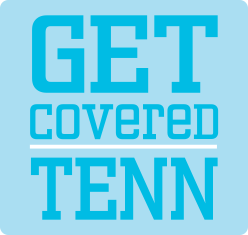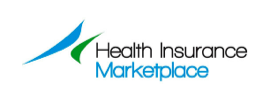NASHVILLE, TENN. – Every year, millions of Tennesseans enroll in health insurance – while millions more go without health insurance due to the high cost of coverage. There is a nonprofit group who wants all Tennesseans to have access to quality healthcare, and they are passionate about helping those who need help navigating the often-confusing health insurance landscape to find what they need and can afford.
That group is Get Covered Tennessee, a program operated by Nashville-based Family & Children’s Service (F&CS), in partnership with Matthew Walker Comprehensive Health Center, Appalachian Mountain Project Access, Cherokee Health Systems, and approximately 400 other partners across Tennessee. Launched in 2015, the network of navigator agencies and serves all 95 counties of the state.
New this year is that many more families are now eligible for Marketplace than ever before due to the “family glitch” being resolved, allowing for larger number of people eligible than in year’s prior.
It is especially important for these newly eligible families to be informed of their eligibility. Now, If a family has to pay more than 9.12% (in 2023) of household income for the employer-sponsored plan, they will potentially be eligible for premium tax credits in the Marketplace for the first time.
[*see reference below about “Family Glitch” numbers]
The Open Enrollment period for health insurance sign ups is traditionally held each year from Nov. 1 – Dec. 15; however, this year it will again be extended through Jan. 15, 2023, just as last year, in anticipation of additional enrollments.
This week, F&CS hosted an “Open Enrollment Open House” at its Honey Alexander Center in Nashville Tennessee to officially kick off the open enrollment period statewide and raise awareness about this free service provided by Get Covered Tennessee. Speakers at the event included:
- Mayor John Cooper, Nashville & Davidson County
- Kathy Floyd-Buggs, Nashville Mayor’s Office, Dir. of Neighborhoods
- Sherard McKie, Regional CMS Administrator
- Cullen Douglass, Board Pres., Family & Children’s Service (F&CS)
- Sharon Barker, ACA Navigator/Community Engagement Specialist (F&CS)
- Paul Dodson, Get Covered Tennessee client
Enrollment in health insurance can be stressful for many individuals and families as healthcare costs continue to rise; healthcare plans seem to change with frequency; and the numerous products and programs can be confusing. Get Covered Tennessee has a team of Healthcare Access Navigators who are trained to help consumers review their health coverage options and complete eligibility and enrollment forms. These services are free, unbiased, and available to anyone who needs them.
While providing services to anyone that needs help, the Get Covered program team focuses on traditionally underserved populations.
“We can provide product information and enrollment assistance to anyone in Tennessee, regardless of where they live, by phone, video conference, or in person,” said Aram Khoshnaw, Senior Director, Healthcare Access Services, F&CS. “We want to meet them where they are, and provide them the information they seek in the way that is most comfortable for them. That’s what we do.”
According to the Center for Medicare and Medicaid Services (CMS), thanks to the American Rescue Plan and the Inflation Reduction Act, a majority of people continue to have access to affordable premiums that help lower costs for families. Four out of five customers will be able to find plans for 10 dollars or less per month after tax credits.
GetCoveredTenn network partners provides language interpretation services and accommodation for people with disabilities to ensure everyone has access to these services.
Health insurance through www.HealthCare.gov is often more affordable than many people think. Of new enrollees, 44% obtained coverage for less than $10 per month, and 91% of new enrollees received financial help that lowered their monthly health insurance premiums during the special enrollment period early this year. The government has also boosted ACA subsidies, making even more individuals and families eligible for these discounts.
For more information about the federal insurance marketplace, the open enrollment period, or www.GetCoveredTenn.org, call 866-475-7879 or visit www.getcoveredtenn.org. For more information about Family & Children’s Service, visit www.fcsnashville.org . Alternatively, consumers not needing assistance can enroll in insurance products through the www.HealthCare.gov federal insurance enrollment website.
About Family & Children’s Service
Family & Children’s Service (F&CS) serves all people in crisis and transition by meeting them where they are, understanding their needs, and connecting them to the resources they need. F&CS often ‘fills in the gaps’ in social services, creating a safety net to ensure that all children and families can be safe and healthy. Each year, F&CS provide services to more than 50,000 Tennesseans. F&CS’ mission is to connect individuals and families to hope, to healing, and to one another. Founded in 1943 by volunteers who helped find adoptive homes for children orphaned during WWII, F&CS is one of Nashville’s oldest and most venerated nonprofits. Throughout its history, F&CS has focused on the most vulnerable children and families, adapting its services to meet the changing needs of the community. www.FCSNashville.org
This publication is supported by the Centers for Medicare and Medicaid Services (CMS) of the U.S. Department of Health and Human Services (HHS) as part of a financial assistance award totaling $3,052,030.00with 100 percent funded by CMS/HHS. The contents are those of the author(s) and do not necessarily represent the official views of, nor an endorsement, by CMS/HHS, or the U.S. Government.
# # #
“Family Glitch” details
- From 2014 – 2022, people were ineligible for Advanced Premium Tax Credits (financial assistance for insurance) if they had access to quality, affordable employer coverage for EMPLOYEE ONLY — regardless of cost to add family members
With the family glitch fix ~1 million people will see coverage become more affordable - It’s estimated that 200,000 uninsured people will obtain coverage
- Applies to 2023 plan year
- Replaces a 2013 IRS rule that created the family glitch
- KFF analysis: according to the Kaiser Family Foundation more than 5 million Americans fell through the cracks as a result of the family glitch
- Dependents of a worker with employer coverage may now be eligible for APTCs if the cost for the family premium through the employer exceeds 9.5% of their income
- Previously, family member eligibility was determined by the single employee premium alone.
- ~12% of workers in the US pay more than $10,000/year in premiums for dependents in employer plans
- Since 2013, the average annual employee contribution for family coverage has increased by 30%
- Families might find that the fix puts affordable coverage within reach and will enroll at least some members in MPcoverage with new APTC
- Analysis predicts 20% of new APTC recipients will gain insurance
- Most will see lower premiums after switching from employer coverage
- Not anticipated to have a significant impact on the employer-sponsored insurance market
- Will lead to meaningful savings for families
- Many will be newly eligible for plans with $0 premiums
- Families of low-paid workers, small business employees, service industry, and children under age 18 will see largest impact
- Overall, Third Way estimates that fixing the family glitch would reduce health care costs by $4,152 for a typical family of four with an income of $53,000
- Overall, about 12 percent of covered workers were asked to pay at least $10,000 for coverage for a family of four.
- The Urban Institute found that 4.8 million people, nearly half of them children, would be newly eligible for premium tax credits if the glitch were fixed.
the cost of family coverage has more than tripled since 2000 - Overall, Third Way estimates that fixing the family glitch would reduce health care costs by $4,152 for a typical family of four with an income of $53,000




